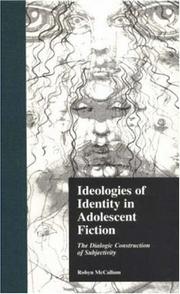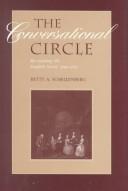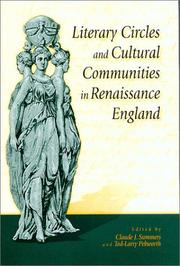| Listing 1 - 7 of 7 |
Sort by
|

ISBN: 1282778943 9786612778940 1135581304 0203900952 9780203900956 9780815322900 0815322909 9781135581305 9781135581251 1135581258 9781135581299 1135581290 9780415858021 041585802X 0815322909 Year: 1999 Publisher: New York Garland Pub.
Abstract | Keywords | Export | Availability | Bookmark
 Loading...
Loading...Choose an application
- Reference Manager
- EndNote
- RefWorks (Direct export to RefWorks)
Ideologies of Identity in Adolescent Fiction examines the representation of selfhood in adolescent and children's fiction, using a Bakhtinian approach to subjectivity, language, and narrative. The ideological frames within which identities are formed are inextricably bound up with ideas about subjectivity, ideas which pervade and underpin adolescent fictions. Although the humanist subject has been systematically interrogated by recent philosophy and criticism, the question which lies at the heart of fiction for young people is not whether a coherent self exists but what kind of self i
Young adult fiction --- Children's stories --- Subjectivity in literature. --- Self in literature. --- Identity (Psychology) in literature. --- Social interaction in literature. --- Fiction --- Narration (Rhetoric) --- Narrative (Rhetoric) --- Narrative writing --- Rhetoric --- Discourse analysis, Narrative --- Narratees (Rhetoric) --- Fiction writing --- Metafiction --- Writing, Fiction --- Authorship --- Young adult literature --- History and criticism. --- Technique. --- Children --- Narration (Rhetoric). --- Youth --- Books and reading. --- børne- og ungdomslitteratur.

ISBN: 0813159075 9780813159072 0813119901 9780813119908 0813185238 9780813185231 Year: 1996 Publisher: Lexington, Ky University Press of Kentucky
Abstract | Keywords | Export | Availability | Bookmark
 Loading...
Loading...Choose an application
- Reference Manager
- EndNote
- RefWorks (Direct export to RefWorks)
The Conversational Circle offers a model for exploring a range of novels that experiment with narrative patterns. It makes a compelling case that teleological approaches to novel history that privilege the conflict between the individual and society are, quite simply, ahistorical. Twentieth-century historians of the early novel, most prominently Ian Watt, Mikhail Bakhtin, and Terry Castle, have canonized fictions that portray the individual in sustained tension with the social environment. Such fictions privilege a strongly linear structure. Recent reexaminations of the canon, however, have r
Families in literature. --- Speech in literature. --- Friendship in literature. --- Social interaction in literature. --- Oral communication in literature. --- Domestic fiction, English --- Literature and society --- Conversation in literature. --- English fiction --- Family in literature --- History and criticism. --- History --- Fiction --- Sociology of literature --- English literature --- anno 1700-1799
Book
ISBN: 1443846341 9781443846349 1443842427 9781443842426 9781443846349 Year: 2013 Publisher: Newcastle upon Tyne Cambridge Scholars
Abstract | Keywords | Export | Availability | Bookmark
 Loading...
Loading...Choose an application
- Reference Manager
- EndNote
- RefWorks (Direct export to RefWorks)
Filling a gap in the literature on communities, this innovative and critical volume proposes the concept of Cocoon Communities. Cocoon communities are highly significant for its members and yet not binding. Membership is voluntary and informal. Weaving together interdisciplinary perspectives, the contributors offer theoretical perspectives and research findings on communities of international students, online mourners, farmworkers, expatriates, and 'Westerners' in India. The volume will be of...
Communities. --- Community life. --- Associations, institutions, etc. --- Human ecology --- Community --- Social groups --- Communities --- Communities in literature --- Social interaction in literature --- #SBIB:39A11 --- #SBIB:39A6 --- 316.47 --- Community in literature --- 316.47 Sociale relaties --(sociologie) --- Sociale relaties --(sociologie) --- Antropologie : socio-politieke structuren en relaties --- Etniciteit / Migratiebeleid en -problemen
Book
ISBN: 9780813928098 9780813928142 0813928141 0813928095 1280490543 9781280490545 9786613585776 6613585777 Year: 2009 Publisher: Charlottesville, Va University of Virginia Press
Abstract | Keywords | Export | Availability | Bookmark
 Loading...
Loading...Choose an application
- Reference Manager
- EndNote
- RefWorks (Direct export to RefWorks)
Whereas scholars of the period have generally read the coquette as a simple and self-evident type, Our Coquettes emphasizes what is strange and surprising about this figure, revealing the coquette to be a touchstone in developing discourses about sexuality, consumerism, empire, and modernity itself. Winner of the Walker Cowen Memorial Prize for an outstanding work of scholarship in eighteenth-century studies.
Thematology --- English literature --- anno 1700-1799 --- Literature and society --- Young women --- Consumption (Economics) --- Consumption (Economics) in literature. --- Man-woman relationships in literature. --- Social interaction in literature. --- Flirting in literature. --- Young women in literature. --- Women --- Young adults --- Girls --- Consumer demand --- Consumer spending --- Consumerism --- Spending, Consumer --- Demand (Economic theory) --- History --- Social life and customs --- History and criticism.

ISBN: 0826264050 9780826264053 0826213170 9780826213174 Year: 2000 Publisher: Columbia University of Missouri Press
Abstract | Keywords | Export | Availability | Bookmark
 Loading...
Loading...Choose an application
- Reference Manager
- EndNote
- RefWorks (Direct export to RefWorks)
Authors, English --- Communities in literature --- Community life --- English literature --- Literature and society --- Renaissance --- Social interaction in literature --- Social interaction --- Human interaction --- Interaction, Social --- Symbolic interaction --- Exchange theory (Sociology) --- Psychology --- Social psychology --- Revival of letters --- Civilization --- History, Modern --- Civilization, Medieval --- Civilization, Modern --- Humanism --- Middle Ages --- Literature --- Literature and sociology --- Society and literature --- Sociology and literature --- Sociolinguistics --- Associations, institutions, etc. --- Human ecology --- Community in literature --- English authors --- History --- History and criticism --- Social aspects --- England --- Angleterre --- Anglii︠a︡ --- Inghilterra --- Engeland --- Inglaterra --- Anglija --- England and Wales --- Intellectual life
Multi
ISBN: 9781107009271 1107009278 9780511920790 9781107470729 1107470722 1139209736 1107228212 1139222627 9786613580085 1139217828 1139224336 113921473X 0511920792 1280485108 113922090X 9781139224338 9781139220903 9781139217828 9781139217828 9781107228214 9781139209731 9781280485107 9781139222624 6613580082 Year: 2012 Publisher: Cambridge Cambridge University Press
Abstract | Keywords | Export | Availability | Bookmark
 Loading...
Loading...Choose an application
- Reference Manager
- EndNote
- RefWorks (Direct export to RefWorks)
This book further develops Professor Seaford's innovative work on the study of ritual and money in the developing Greek polis. It employs the concept of the chronotope, which refers to the phenomenon whereby the spatial and temporal frameworks explicit or implicit in a text have the same structure, and uncovers various such chronotopes in Homer, the Homeric Hymn to Demeter, Presocratic philosophy and in particular the tragedies of Aeschylus. Mikhail Bakhtin's pioneering use of the chronotope was in literary analysis. This study by contrast derives the variety of chronotopes manifest in Greek texts from the variety of socially integrative practices in the developing polis - notably reciprocity, collective ritual and monetised exchange. In particular, the Oresteia of Aeschylus embodies the reassuring absorption of the new and threatening monetised chronotope into the traditional chronotope that arises from collective ritual with its aetiological myth. This argument includes the first ever demonstration of the profound affinities between Aeschylus and the (Presocratic) philosophy of his time.
Cosmology in literature. --- Space and time in literature. --- Social interaction in literature. --- Money in literature. --- Ritual in literature. --- Greek drama (Tragedy) --- Philosophy, Ancient. --- Cosmologie dans la littérature --- Espace et temps dans la littérature --- Interaction sociale dans la littérature --- Monnaie dans la littérature --- Rituel dans la littérature --- Tragédie grecque --- Philosophie ancienne --- History and criticism. --- Histoire et critique --- Aeschylus --- Criticism and interpretation. --- Thematology --- Drama --- Cosmologie dans la littérature --- Espace et temps dans la littérature --- Interaction sociale dans la littérature --- Monnaie dans la littérature --- Rituel dans la littérature --- Tragédie grecque --- Cosmology in literature --- Money in literature --- Philosophy, Ancient --- Ritual in literature --- Social interaction in literature --- Space and time in literature --- Space and time as a theme in literature --- Ancient philosophy --- Greek philosophy --- Philosophy, Greek --- Philosophy, Roman --- Roman philosophy --- History and criticism --- Aischylos --- Eschilo --- Eschyle --- Eschylus --- Arts and Humanities --- History --- Eskhil --- Esquilo --- Aiskhilos --- Eshil --- Æskílos --- Ajschylos --- Eschil --- Esḳilos --- Äschylos --- Eskili --- Aiszkhülosz --- Eschylos --- Iskilos --- Эсхил --- אייסכילוס --- איסכילאס --- איסכילוס --- إيسخولوس --- ايسخيلوس --- Αἰσχύλος
Book
ISBN: 9780521879125 9780521182867 9780511575402 0511464649 9780511464645 9780511465383 0511465386 0521879124 0511575408 0521182867 1107199328 1281982806 9786611982805 0511463103 051146231X 0511463898 Year: 2010 Publisher: Cambridge Cambridge University Press
Abstract | Keywords | Export | Availability | Bookmark
 Loading...
Loading...Choose an application
- Reference Manager
- EndNote
- RefWorks (Direct export to RefWorks)
Shakespeare's remarkable ability to detect and express important new currents and moods in his culture often led him to dramatise human interactions based on the presence or absence of tolerance. Differences of religion, gender, nationality and what is now called 'race' are important in most of Shakespeare's plays, and varied ways of bridging these differences by means of sympathy and understanding are often depicted. The full development of a tolerant society is still incomplete, and this study demonstrates how the perceptions Shakespeare showed in relation to its earlier development are still instructive and valuable today. Many recent studies of Shakespeare's work have focused on reflections of the oppression or containment of minority, deviant or non-dominant groups or outlooks. This book reverses that trend and examines how Shakespeare was fascinated by the desires that underlie tolerance, including religion, race and sexuality, through close analysis of many Shakespearian plays, passages and themes.
Shakespeare, William --- Toleration in literature. --- Social interaction in literature. --- Ethnic relations in literature. --- Race relations in literature. --- Religious tolerance in literature. --- Interpersonal relations in literature. --- Shakespeare, William, --- Shakespear, William, --- Shakspeare, William, --- Šekʻspiri, Uiliam, --- Saixpēr, Gouilliam, --- Shakspere, William, --- Shikisbīr, Wilyam, --- Szekspir, Wiliam, --- Šekspyras, --- Shekspir, Vilʹi︠a︡m, --- Šekspir, Viljem, --- Tsikinya-chaka, --- Sha-shih-pi-ya, --- Shashibiya, --- Sheḳspir, Ṿilyam, --- Shaḳspir, Ṿilyam, --- Syeiksŭpʻio, --- Shekspir, V. --- Szekspir, William, --- Shakespeare, Guglielmo, --- Shake-speare, William, --- Sha-ō, --- Şekspir, --- Shekspir, Uiliam, --- Shekspir, U. --- Šekspir, Vilijam, --- Ṣēkspiyar, Viliyam, --- Shakspir, --- Shekspyr, Vyli︠e︡m, --- Şekspir, Velyam, --- Ṣēkspiyar, Villiyam, --- Shēkʻspʻiyr, Vlilliam, --- Ṣēkspiyar, --- Ṣēkspiyar Mahākavi, --- Ṣēkspiyar Mahākaviya, --- Sheḳspier, Ṿilyam, --- Shēkʻspir, --- Shakespeare, --- Śeksper, --- Шекспир, Вильям, --- Шекспир, Уильям, --- שייקספיר, וויליאם, --- שייקספיר, וו., --- שיקספיר, וויליאם --- שיקספיר, ויליאם --- שיקספיר, ויליאם, --- שכספיר, ויליאם, --- שכספיר, וילים, --- שכספיר, ו׳ --- שעפקספיר, וויליאם, --- שעקספיער, וויליאם --- שעקספיער, וויליאם, --- שעקספיער, ווילליאם --- שעקספיער, וו., --- שעקספיר --- שעקספיר, וו --- שעקספיר, וויליאם, --- שעקספיר, וויליאמ --- שעקספיר, ווילליאם --- שעקספיר, ווילליאם, --- שעקספיר, וו., --- שעקספיר, װיליאם, --- שעקספיר, װילליאם, --- שעקספיר, װ., --- שעקספער --- שעקספער, וויליאמ --- שקספיר --- שקספיר, וו --- שקספיר, וויליאם --- שקספיר, וויליאם, --- שקספיר, ווילים, --- שקספיר, וילאם --- שקספיר, ויליאם --- שקספיר, ויליאם, --- שקספיר, ויליים, --- שקספיר, וילים --- שקספיר, וילים, --- شاكسبير، وليم --- شاكسپير، وليم --- شكسبير، وليام --- شكسبير، وليم --- شكسبير، وليم، --- شكسبير، و. --- شكسپير، وليم --- شكسپير، ويليام --- شيكسبير، وليام --- شيكسبير، وليام.، --- شيكسبير، وليم --- شکسبير، وليم --- وليم شکسبير --- 沙士北亞威廉姆, --- 沙士比亞威廉姆, --- 莎士比亞威廉姆, --- 莎士比亞威廉, --- 莎士比亞, --- Knowledge --- Sociology. --- Political and social views. --- Sociology in literature. --- Learning and scholarship. --- Toleranz --- Religiös tolerans i litteraturen. --- Shakespeare, William. --- Knowledge and learning. --- Criticism and interpretation. --- politiska och sociala åsikter. --- och sociologi. --- Arts and Humanities --- Literature
| Listing 1 - 7 of 7 |
Sort by
|

 Search
Search Feedback
Feedback About UniCat
About UniCat  Help
Help News
News